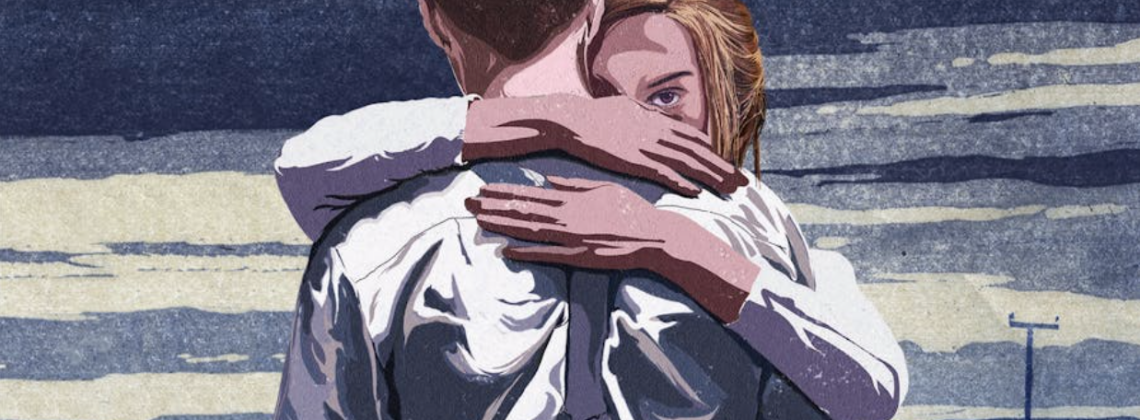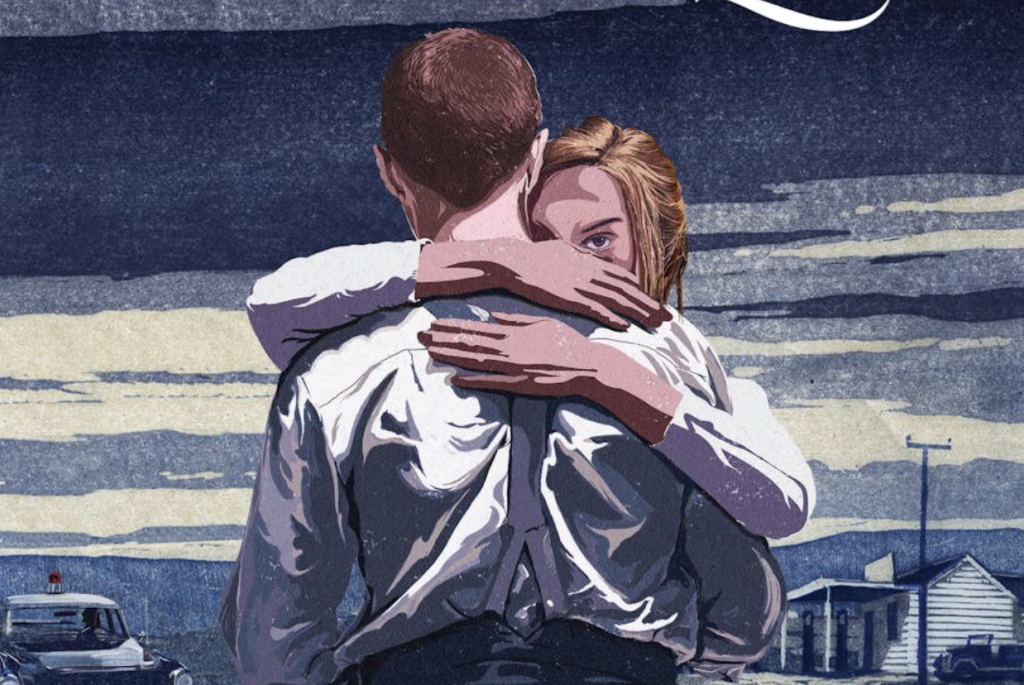

Amanda McCrina’s characters glow like embers
I’ll Tell You No Lies by Amanda McCrina. Farrar, Straus and Giroux, 2023. 224 pp., $18.99
Ask me no questions,
and I’ll tell you no lies;
ask me no questions,
and there’ll be no goodbyes.
In Amanda McCrina’s latest novel, I’ll Tell You No Lies, Soviet defector Maksym Ivanovych* approaches Shelby Blaine, daughter of an intelligence officer, in a meet-cute at his welcoming party at Griffiss Air Force Base in Rome, NY.
Maksym strolls up to Shelby’s table, spilling his champagne. They talk. He invites her to dance. She can’t: Her pencil skirt won’t allow it. Shelby, it turns out, can’t bring herself to wear the sea-green cocktail dress her mom gave her for her birthday a few months earlier. We learn in the first line of the book that her mom was killed in a car accident.
In this thoroughly entertaining Cold War spy thriller, all kinds of questions are asked, and all kinds of lies are told, but perhaps the most important question is this: Can anyone trust anyone in this world, and if so, is it worth it?
Over and over across three novels—Traitor, The Silent Unseen, and this newest—the answer seems to be something like this: It’s complicated, but it’s necessary. There are times when we must do what trust requires, when there is a moral urgency to figure it out.
In her author’s note McCrina explains what happened to Soviet defectors once they reached the U.S. Some did well; others—under suspicion, because “Once a traitor, always a traitor”—ended up in conditions as harsh as the ones they tried to escape. We meet Maksym in just such a dilemma.
We meet Shelby, the viewpoint character for Lies, at a high point of personal crisis. Her mother has just died, and she’s hurriedly preparing to move with her father from Ramstein, Germany to Rome, NY. Her dad’s assignment has to do with Maksym.
Moved along by the force of her father’s job and his unspoken decisions, Shelby is living a life full of things she doesn’t choose. But what she does choose is to help Maksym, who may or may not be a liar.
In scenes that echo some of the most poignant in Traitor and The Silent Unseen, Shelby chooses to trust Maks based on a combination of logic, instinct, and young love. She begins to learn his story, deciding to show kindness to the man who answers her question, “Did you lose anybody . . . in the war?” with “Everybody.”
I’ll Tell You No Lies is a YA love story and a spy thriller. In some ways, I am not the target audience. I read few thrillers and fewer mysteries, and I’m better at following character development than plot. This story is full of twists and turns, and it took me two readings to settle on what (I think) actually happened.
But I’ll say this: Not only is this the kind of book I would have read and loved in my teens, it kept me reading in the thick of my life now, with no desire to put it down other than the late-night urgency of sleep and weak middle-aged eyes.
As is the case with all books, different moments will move different readers. One of my favorite scenes cannot be described without spoiling the book, so I won’t. You can read McCrina’s three novels in any order, but if you have read Traitor, you’ll be rewarded.
For me, one of the most gutting parts is when Shelby discovers Maksym’s age and realizes that he was a child during the war. McCrina’s dedication page reminds us that Maksym—a Ukrainian—has a story that is hauntingly repeated today:
This book is dedicated to the more than four hundred Ukrainian children killed by Russian forces since February 2022—and to the thousands who have been orphaned, abducted, or otherwise separated from their families; may they all find their way home.
An idea that has pursued me over the last few years is the connection between love and attention. One of my colleagues, a philosopher, teaches students the Hebrew word kavanah, a posture of the heart oriented toward deep attentiveness and devotion. You can sense its meaning in my favorite scene in Greta Gerwig’s Lady Bird, when the main character, Christine “Lady Bird” McPherson, is discussing her college entrance essay, written to help her escape her hometown for a university on the other side of the country.
Sister Sarah Joan: You clearly love Sacramento.
Lady Bird: I do?
Sister Sarah Joan: You write about Sacramento so affectionately and with such care.
Lady Bird: I was just describing it.
Sister Sarah Joan: Well, it comes across as love.
Lady Bird: Sure, I guess I pay attention.
Sister Sarah Joan: Don’t you think maybe they are the same thing? Love and attention?
Amanda McCrina has been paying deep attention to the stories of Ukrainians and Poles who suffered unspeakable physical and psychological harm before, during, and after World War II. The most compelling parts of I’ll Tell You No Lies—and the other two related novels as well—occur when historical reality rises up like a flood, immersing these fictional characters, and me, too. This happened. This is happening.
It is McCrina’s advocacy for Ukraine and her moving response to Olesya Khromeychuk’s memoir, The Death of a Soldier Told by His Sister, that led me to read it and review it at Current last fall. What haunted me most from Khromeychuk’s memoir was the line from a song her brother sang in a video from the front. “Who’ll rock that cradle when I’m gone?” Who will remember, who will notice, who will tell my story? In my review of Death of a Soldier, I argued that we need artists who help us pay attention, who frame reality for us and help us think and feel properly about the otherwise unfathomable.
McCrina is doing it. She listens to voices and stories of the past. Her characters are like embers pulled from a fire. She holds them up for us to see, blows on the ashes, and reanimates their most compelling questions.
*This is Maksym’s patronymic. His actual surname—revealed in the first quarter of the book—is a link to a host of connections especially rewarding for readers of McCrina’s previous two novels.
Julie Durbin is an adjunct professor teaching Humanities and English at Geneva College. She served with Free Methodist World Missions for ten years in Ukraine and did dissertation research on worship in Ukrainian simple churches.
Image: Macmillan Publishers